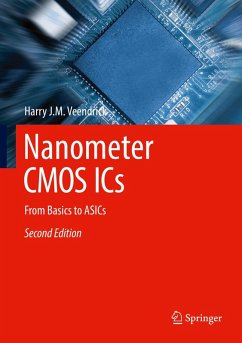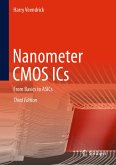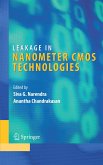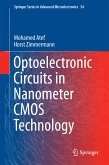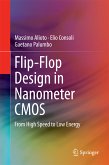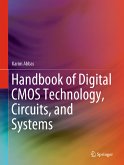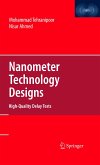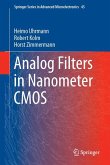This textbook provides a comprehensive, fully-updated introduction to the essentials of nanometer CMOS integrated circuits. It includes aspects of scaling to even beyond 12nm CMOS technologies and designs. It clearly describes the fundamental CMOS operating principles and presents substantial insight into the various aspects of design implementation and application. Coverage includes all associated disciplines of nanometer CMOS ICs, including physics, lithography, technology, design, memories, VLSI, power consumption, variability, reliability and signal integrity, testing, yield, failure analysis, packaging, scaling trends and road blocks. The text is based upon in-house Philips, NXP Semiconductors, Applied Materials, ASML, IMEC, ST-Ericsson, TSMC, etc., courseware, which, to date, has been completed by more than 4500 engineers working in a large variety of related disciplines: architecture, design, test, fabrication process, packaging, failure analysis and software.
Dieser Download kann aus rechtlichen Gründen nur mit Rechnungsadresse in A, B, BG, CY, CZ, D, DK, EW, E, FIN, F, GR, HR, H, IRL, I, LT, L, LR, M, NL, PL, P, R, S, SLO, SK ausgeliefert werden.

